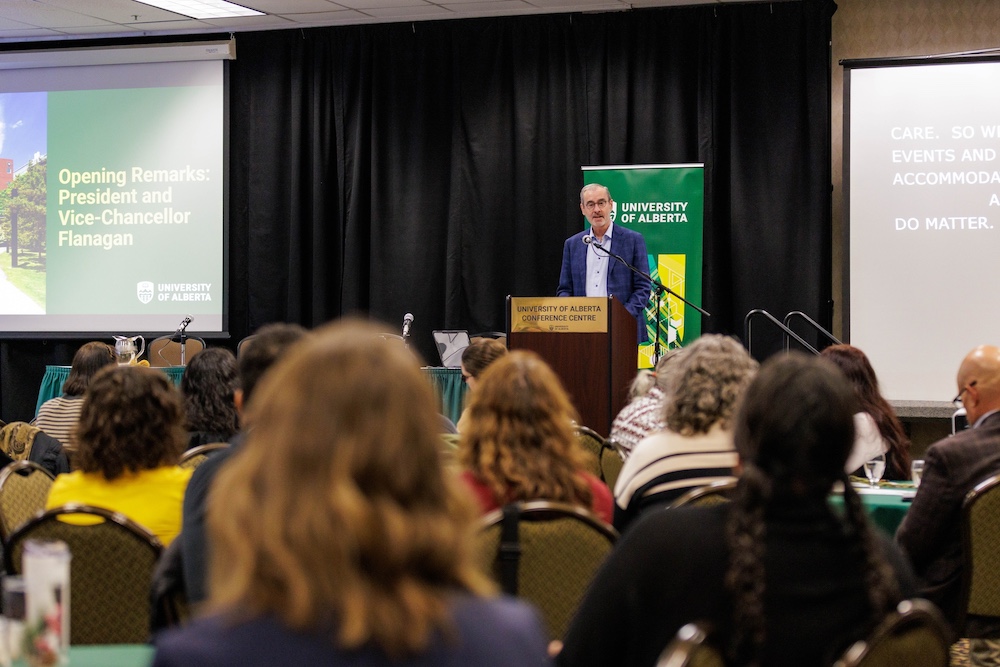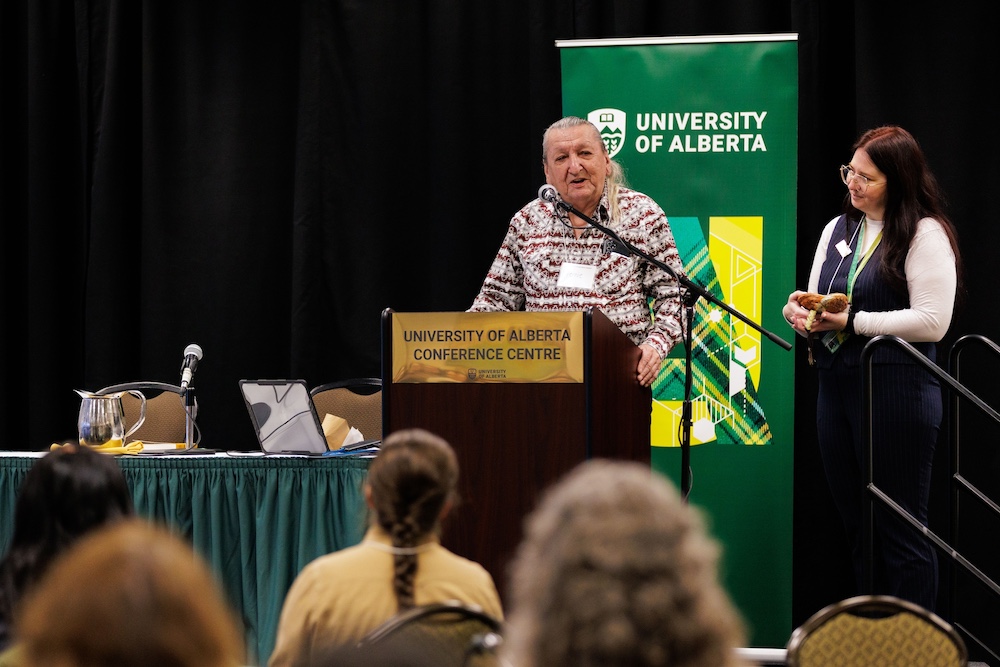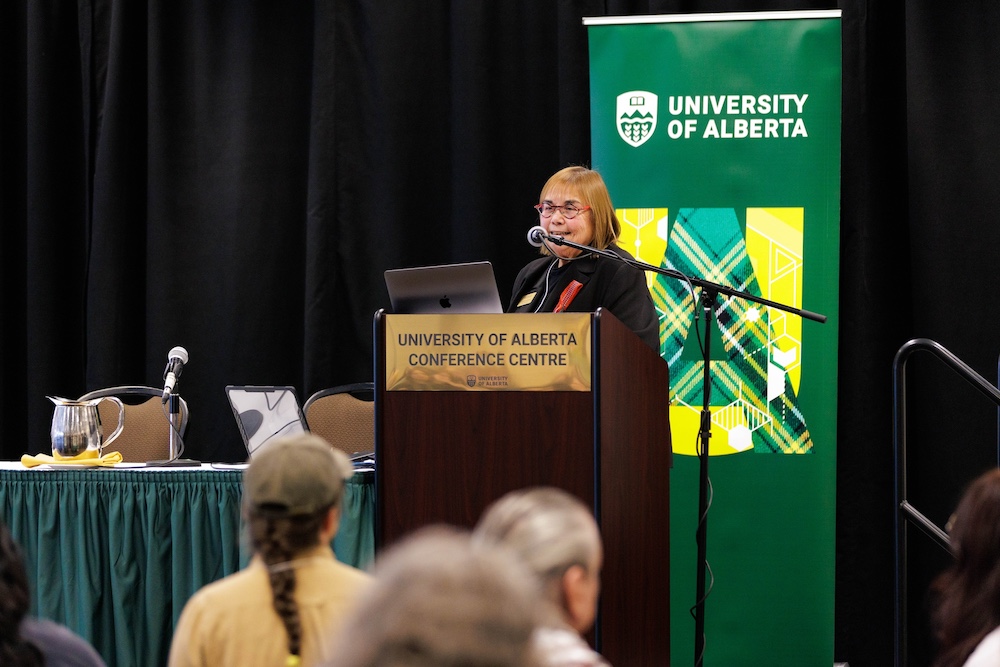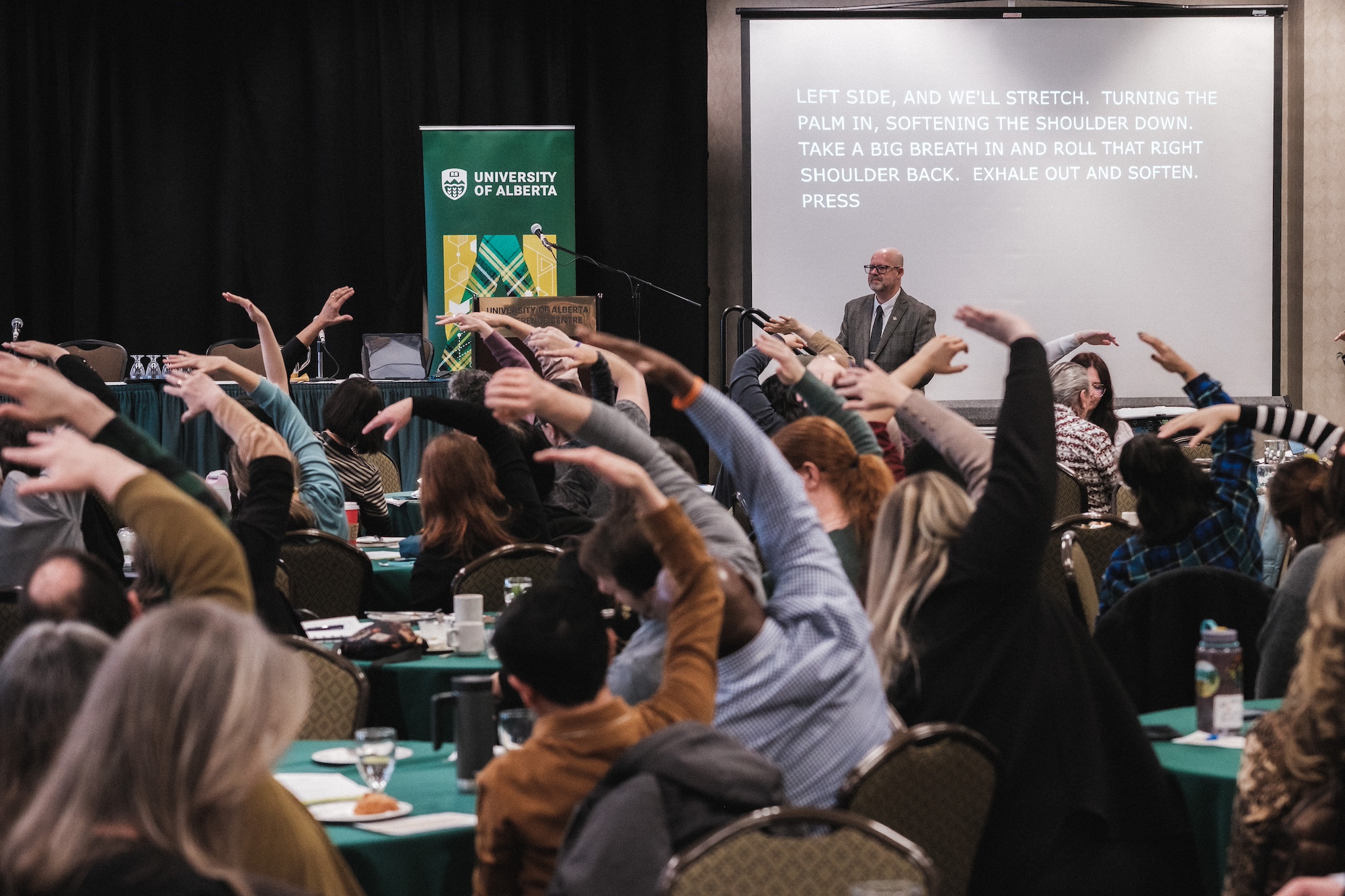Culture of Care Safety Summit
The second annual Culture of Care Safety Summit on January 29, 2025 was an inspirational gathering of over 250 attendees, presenters and exhibitors dedicated to integrating safety into their work at the U of A. Following a theme of Awareness to Action, the summit focused on the three types of safety that affect the university community: physical, psychological and cultural.
President Flanagan opened the full-day conference and the audience received an inspiring keynote address from Florence Glanfield, Vice-Provost (Indigenous Programming & Research).
The day featured a range of presentations from experts across the university and beyond, with topics including:
- From Leadership to Learners: Unpacking Safety Responsibilities Across the U of A
- Emergency Response Plans: From Development to Deployment
- Strengthening Campus Safety through Insight, Prevention, and Engagement
- Managing and Mitigating Infrastructure-Related Safety Issues
- Injury Interrupted: Prevention Stories & Strategies
- Beyond the Bush: Enhancements to Field Research Safety Globally
- Aggression and Harassment on the Front Line: Stories & Strategies for Prevention
- Understanding the Importance and Impact of Indigenous Ceremonial Practices
- Indigenous Primary Healthcare and Cultural Safety
- Cultural Safety and Building Progressive and Inclusive Communities
- The Power of Professional Generosity: Strategies to Build Trusting Relationships
- Leading With Mental Health In Mind: Preparing For The New Workforce
Watch for several of these topics to be revisited throughout 2025 as part of the Culture of Care “How-to” Safety Webinar series. These monthly events will be featured in Working at the U, Employees Digest and the University of Alberta Events page.
Be safe and stay tuned for details about the 2026 Culture of Care Safety Summit event later this year.




